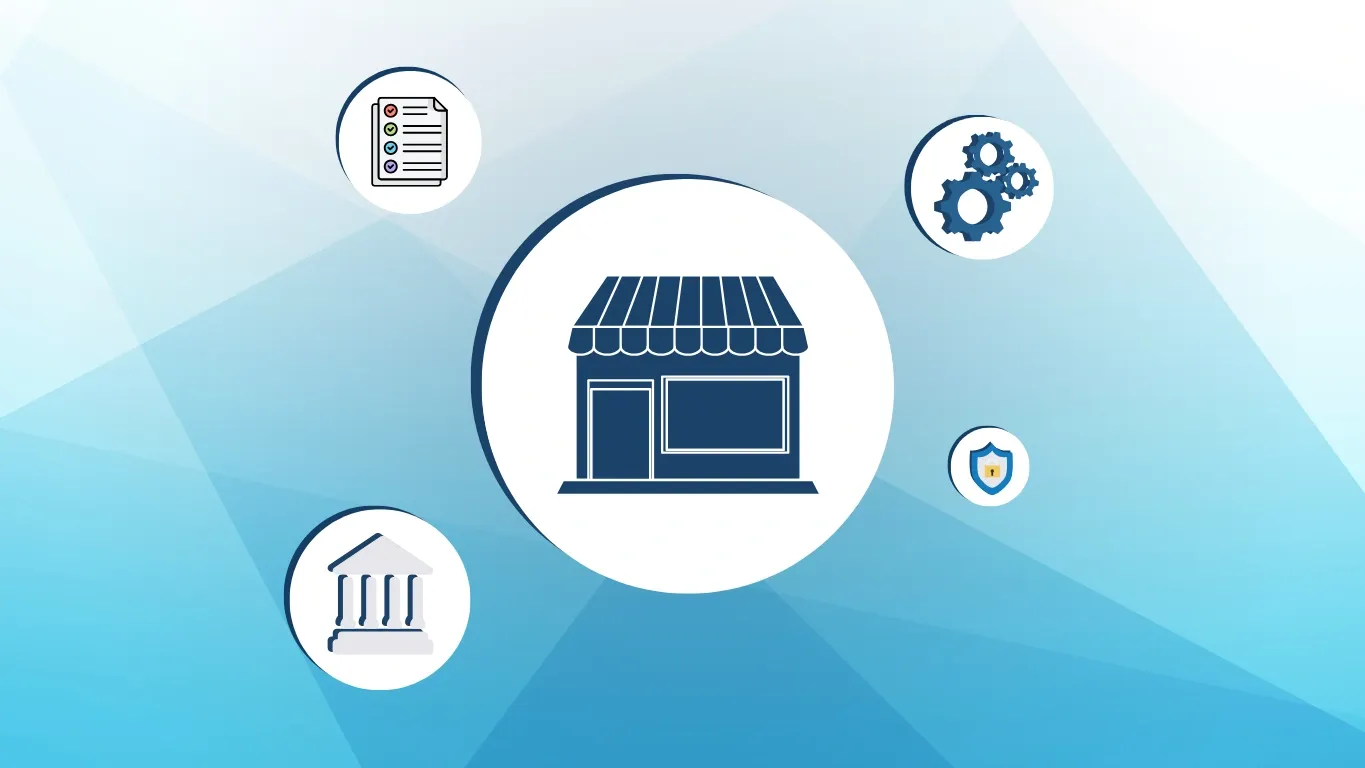GCC High Licensing Requirements for Small Businesses
Learn the licensing requirements for small businesses seeking Microsoft 365 GCC High, including minimum user counts, eligibility, and steps for purchasing secure cloud licenses.

This is Post #3 of our GCC High Licensing and Validation Series
If you missed the earlier posts, start here to get the full picture:

For Government contractors handling sensitive government data such as Controlled Unclassified Information (CUI), investing in the right cybersecurity measures is essential in order to maintain compliance with federal regulations such as CMMC and ITAR. In particular, many organizations that rely on Microsoft products depend on the enhanced security and compliance features provided by Microsoft Government Community Cloud (GCC) High to help them properly secure the sensitive government data they handle, store, and transmit on their networks. Yet, many small businesses are often wary of making the move to GCC High, as they are worried that their business is too small to qualify, or they believe they don’t have the resources to successfully migrate to a GCC High tenant. However, with small businesses accounting for over 70% of organizations within the Defense Industrial Base (DIB), it is important that small businesses with federal contracts understand the truths behind these misconceptions, and how they can streamline the process of migrating to GCC High. Keep reading as we explore what small businesses in the DIB need to know about GCC High, including licensing requirements, the types of licenses available, and how they can simplify a GCC High migration.
GCC High Licensing Requirements for Small Businesses
While some people might assume that their business is too small for GCC High, this is not the case. In fact, any qualifying organization can purchase GCC High licenses as long as they can prove eligibility and have received validation from Microsoft, as Microsoft allows organizations to purchase as few as one GCC High license. As long as you obtain validation and go through an approved retailer, such as Microsoft or a Microsoft-Authorized AOS-G partner, organizations within the defense industrial base that handle CUI or other sensitive government data should not have a problem purchasing GCC High regardless of their size. Once you receive validation from Microsoft, you can work with an AOS-G partner to choose the right GCC High license options for your organization, even if this means purchasing just one license.
Types of GCC High Licenses
Before you can purchase GCC High licenses for your organization, you must first decide which license type(s) you need. Microsoft offers several kinds of GCC High licenses, each offering different levels of security, compliance, and productivity features. These licenses are divided into three categories: F-Series Frontline licenses and E-Series Enterprise Licenses and G-Series, specifically designed for U.S. government organization and their contractors. Each offers different features, making it essential that you choose the right ones for your organization.
F1/F3 licenses are designed for frontline workers and offer core collaboration and communication tools, including web-based versions of many office applications. Alternatively, G-Series licenses are enterprise-level licenses that provide more comprehensive features, with G3 licenses offering desktop office apps and core cloud services. G5 is the most comprehensive GCC High license, offering advanced security, compliance, and analytics features.
As a general rule, it’s recommended that all organizations migrating to GCC High purchase at least one G5 license, as this will give you access to advanced compliance features such as Customer Lockbox and Microsoft Purview Compliance Manager that can prove essential in helping you secure CUI and other sensitive government data you handle. Of course, your AOS-G partner can help you select the right licenses if you’re unsure what GCC High licenses your organization needs.
Steps to Purchase GCC High Licenses
Once you have a better understanding of what GCC High licenses your small business needs, you will be ready to start the process of purchasing these licenses. However, unlike commercial Microsoft licensing, purchasing GCC High is not a simple process, as there are several steps involved. The first thing you must do is apply for validation, as only eligible customers can purchase GCC High. You will then have to submit an application to Microsoft explaining the type of government data you handle and what regulations you need to comply with that necessitates the use of GCC High. You will also be asked to provide supporting documentation, such as a government contract, a letter of sponsorship from a federal agency, a CAGE code, or SAM.gov registration. Next, you will need to select a qualified AOS-G or LSP reseller, as only authorized companies are permitted to sell GCC High. However, as a small business, you will need to partner with an AOS-G partner, as LSP resellers only work with organizations purchasing more than 500 seats. Once you choose an AOS-G partner, you can work with them to purchase GCC High and even have them help provision your tenant.
Common Challenges for Small Businesses
For many organizations in the DIB, migrating to GCC High is necessary in order to properly secure the CUI they handle to maintain compliance. Unfortunately, migrating to GCC High is no simple task, and it can pose certain challenges for small businesses with limited resources. One of the biggest challenges associated with moving to GCC High is increased costs. In fact, GCC High licenses can cost up to 50% more than their commercial counterparts due to the substantial investments required by Microsoft to ensure this platform meets strict compliance and data-residency standards required by the federal government. Another significant challenge small businesses face when moving to GCC High is the complexity of these migrations. For small businesses with limited resources, setting up and maintaining GCC High can be more than their in-house IT team can handle. This can make the prospect of migrating to GCC High feel like an insurmountable hurdle for these organizations.
How Small Businesses Can Overcome These Challenges
While migrating to GCC High poses unique challenges for small businesses in the DIB, the good news is that many of these challenges can be overcome by partnering with an experienced managed service provider (MSP). By choosing an MSP experienced in compliance with federal regulations such as DFARS, CMMC, and ITAR, you will have a partner by your side who can help guide you through the compliance process. It can be particularly useful to partner with an MSP that is also an AOS-G reseller and a Cyber AB-approved Registered Provider Organization (RPO), as this allows you to bundle licensing, migration, and compliance services. Not only can this potentially save you money on your GCC High migration, but it can also streamline your migration, as you will have Microsoft and compliance experts by your side to help ensure your compliance journey goes as smoothly as possible.
Start Your GCC High Licensing Journey With Agile IT
Contrary to popular belief, GCC High isn’t just for large companies. Small businesses can also benefit from the advanced security and compliance features it provides, and the fact is that purchasing GCC High may be necessary for you to meet your contractual compliance obligations, particularly if you are working with the Department of Defense. The good news is that GCC High is accessible to small businesses, and choosing the right AOS-G partner can help streamline the process of purchasing, provisioning, and migrating to GCC High.
If you are starting the process of migrating to GCC High to fulfill your compliance obligations, consider partnering with Agile IT. As a Microsoft-authorized AOS-G reseller and Cyber AB-authorized Registered Provider Organization, we can walk you through this complex process by helping you apply for validation, choose the right licenses, provision your new tenant, manage your migration, and help you achieve and maintain compliance with federal regulations. Feel free to contact us today to learn more about our comprehensive compliance service and how we can facilitate your GCC High migration.





